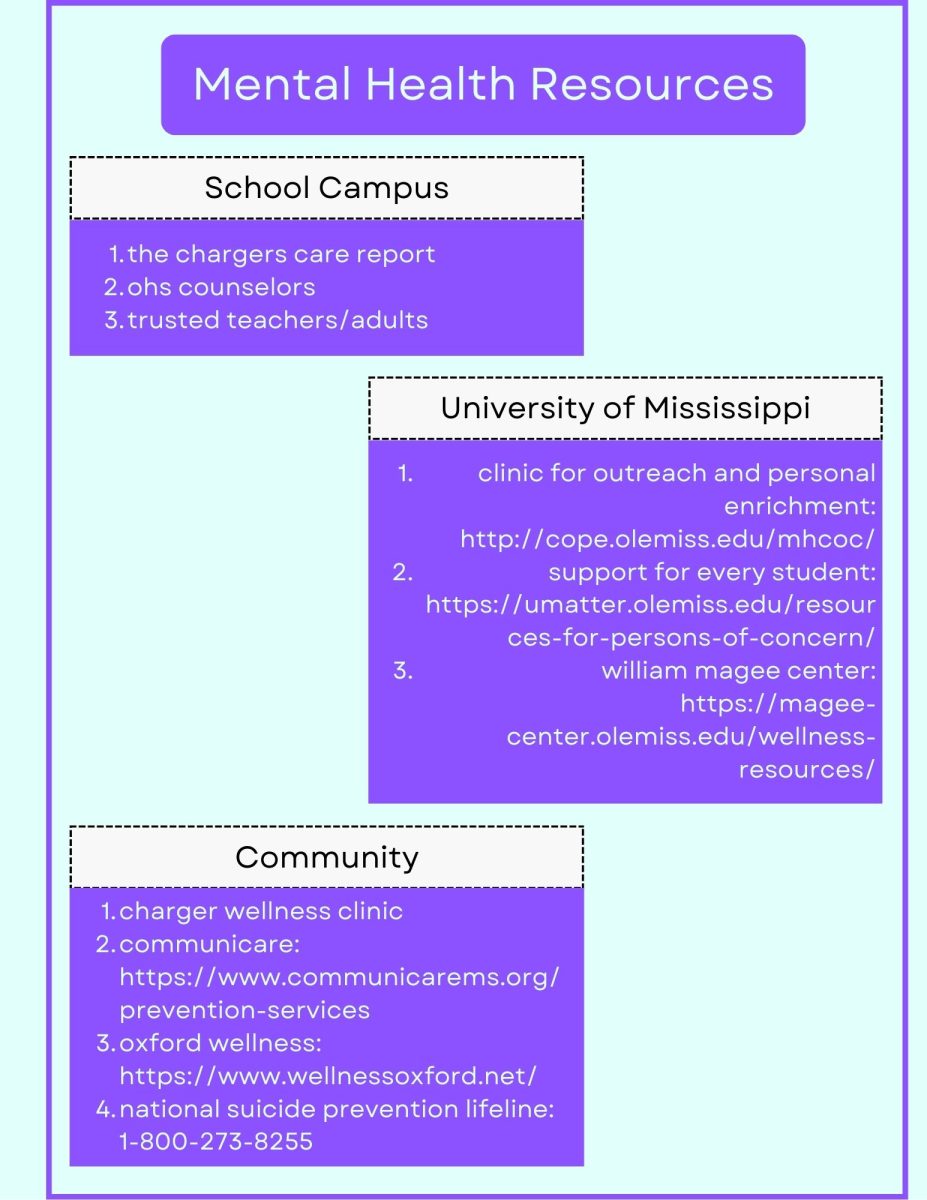The Ice Bucket Challenge makes its comeback 11 years later with a new awareness. The Ice Bucket Challenge started as an awareness cause for “ALS” inspiring 17 million people to dump ice on their head and donate to ALS organizations raising over 115 million dollars. Now in 2025 it is transitioning to bring attention to the University of South Carolina’s “Mental Health Awareness Club.”
“I remember when I was about six years old crying about the cold water,” said OHS sophomore Caroline Love. “I don’t remember much about the original cause, but I’m glad it’s back to support mental health, our generation needs that reminder.”
USC brings back the challenge this time to break the stigma and promote daily conversations concerning mental health, a daily struggle in many people’s lives. With the challenge starting on Mar 30, it didn’t take long for the Oxford community to join in. Many students in the Oxford community respond to “USC Speak your Mind challenge” starting with Love.
“I was nominated by my friend in Tupelo,” Love said. “I was super excited to spread awareness and to start the chain reaction in Oxford.”
Once Love completed the challenge and sparked the trend in Oxford, it quickly triggered a domino effect throughout the community. With the Ice Bucket challenge being showcased on social media, it boosts its awareness and adds a fun twist.
“I think social media has promoted and enhanced the awareness surrounding mental health and breaking the stigma it has, considering how influential and active our generation is on social media,” OHS sophomore Mary Helen Rhodes said. “Having the challenge appear on platforms I use daily makes it really easy to click on their profile and engage.”
This quick participation highlights the power of social media in driving important conversations. With just a few simple rules, this fun and accessible challenge makes it easy for anyone to join in and help spark meaningful conversation
“As soon as I was nominated I researched the steps, made my video and nominated the next group of people to spread the word,” Rhodes said. “Next thing you know 15 more people are researching the cause and raising awareness, and the “you have 24 hrs” rule time limit making it spread much faster.”
Just like that, one small action turned into a ripple effect showing how a simple challenge can spark important discussions and create a growing movement for mental health awareness. USC chose the ice bucket challenge not only because of its success in the past year but to symbolize something more.
“Getting hit with ice water really illustrated the overwhelming and uncomfortableness of talking about mental health,” Love said. “I think it was really cool how USC used ice water to represent that. But in both cases the aftermath leaves you feeling relieved and proves.”
comments







